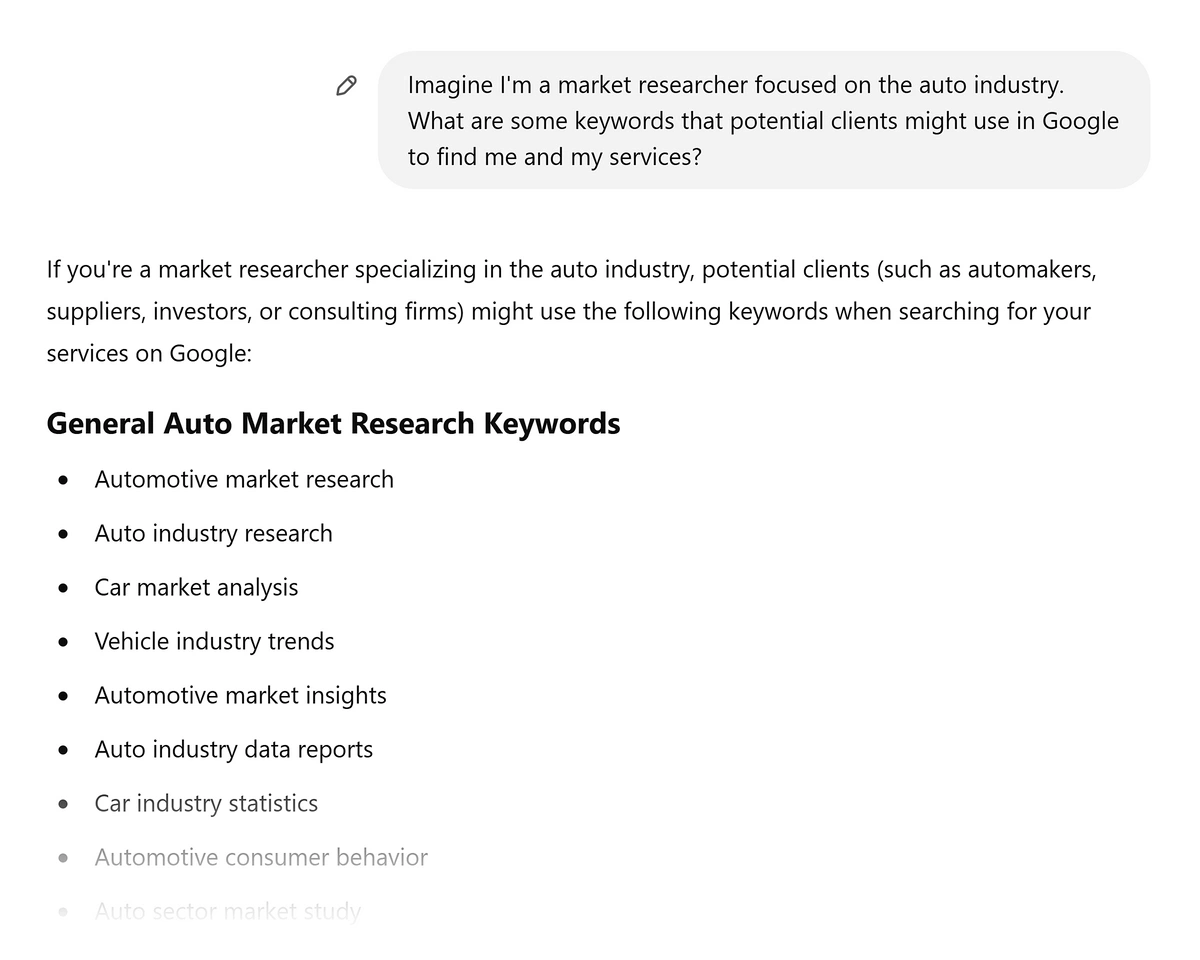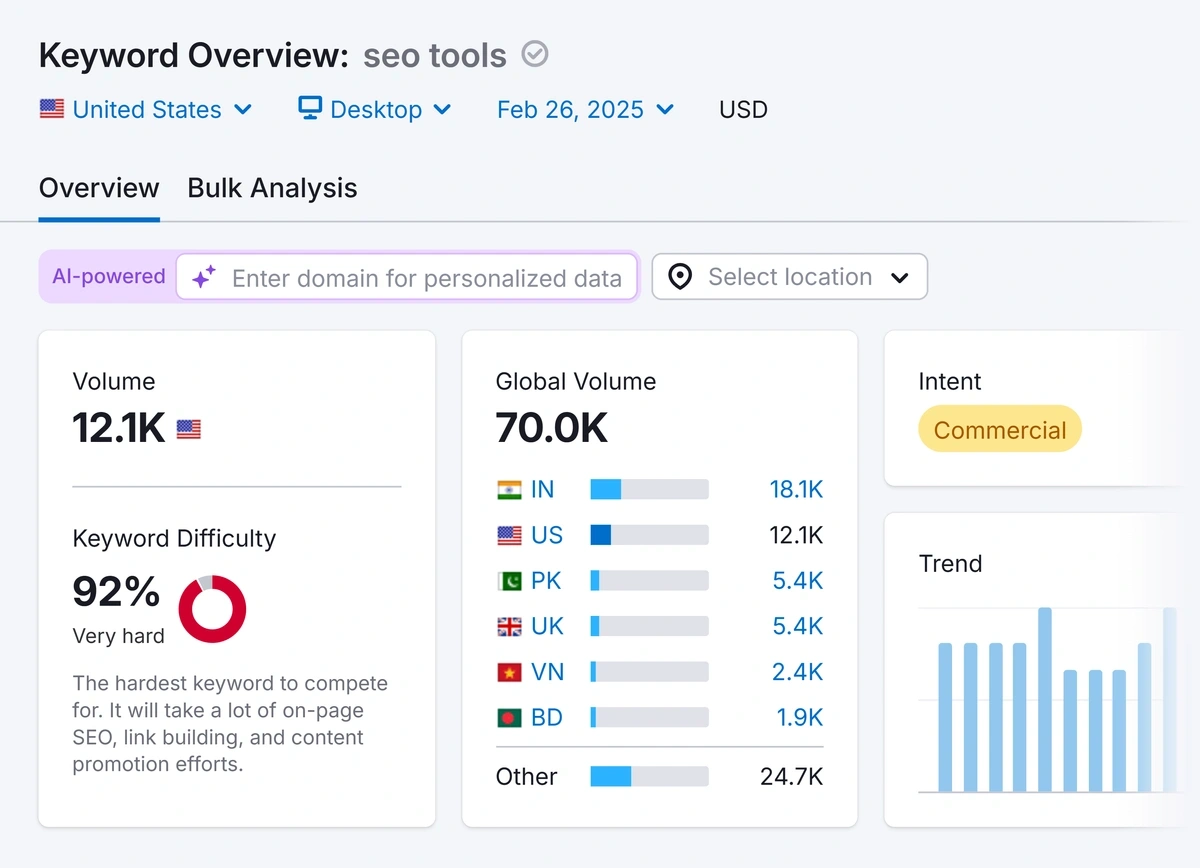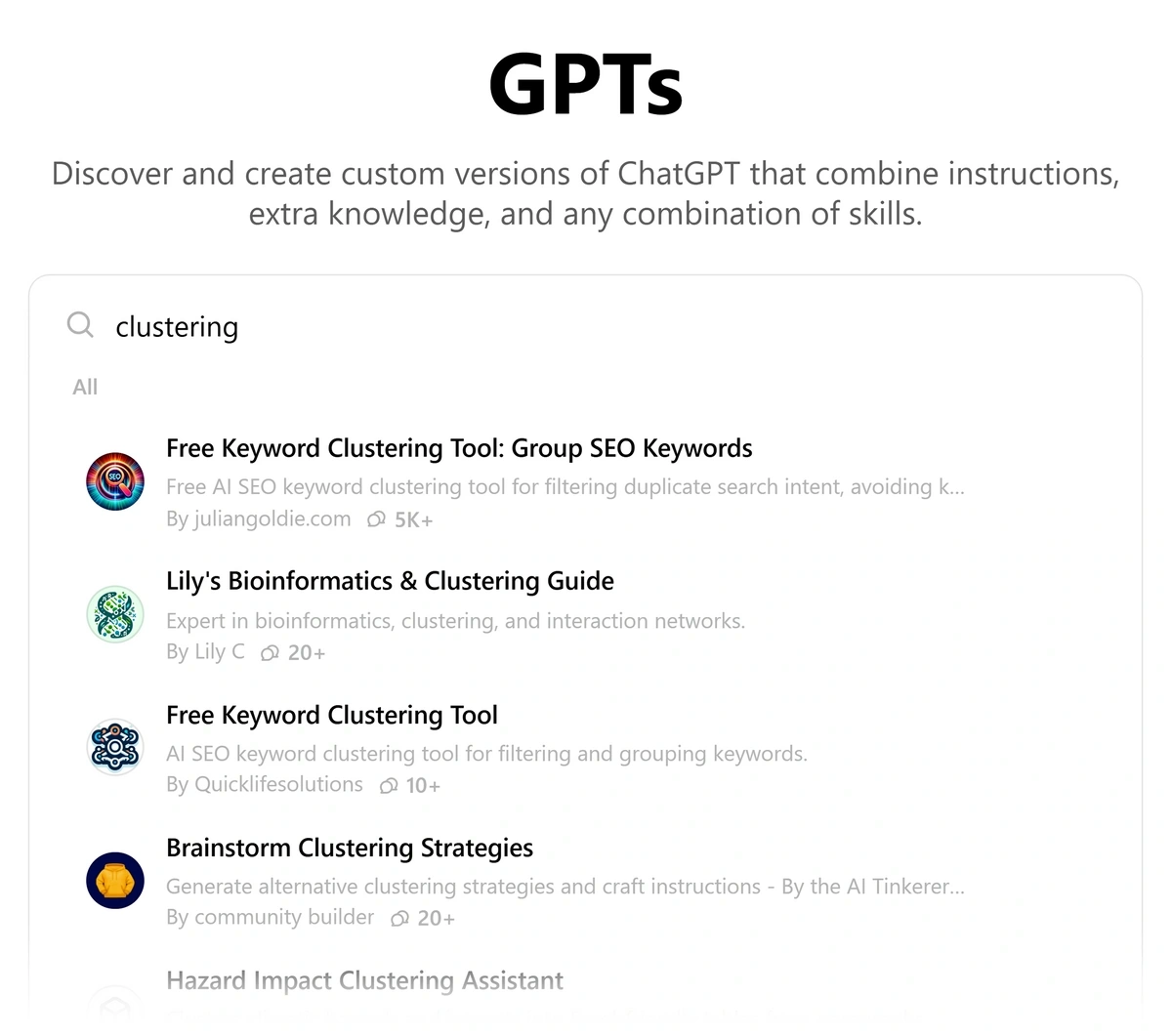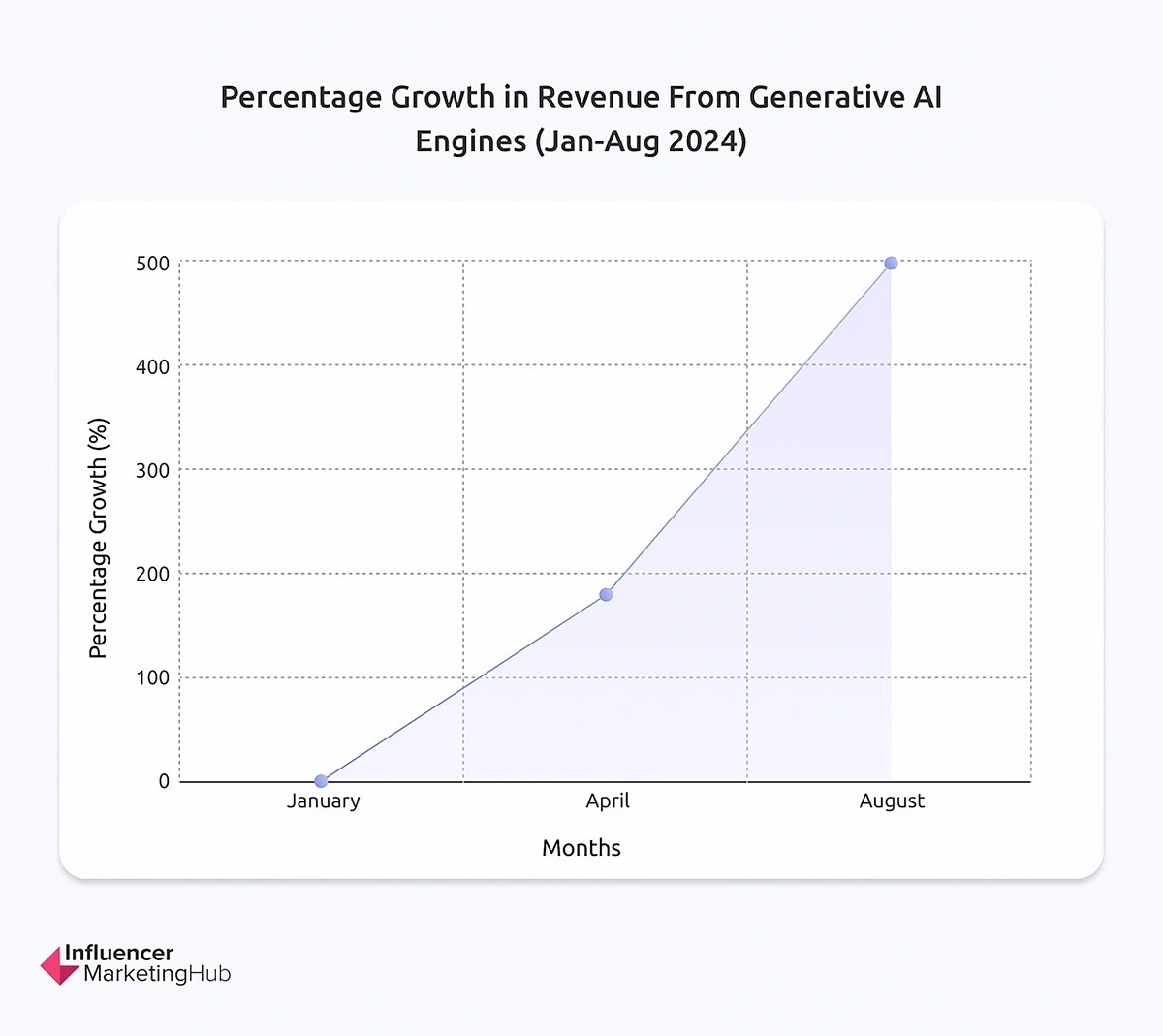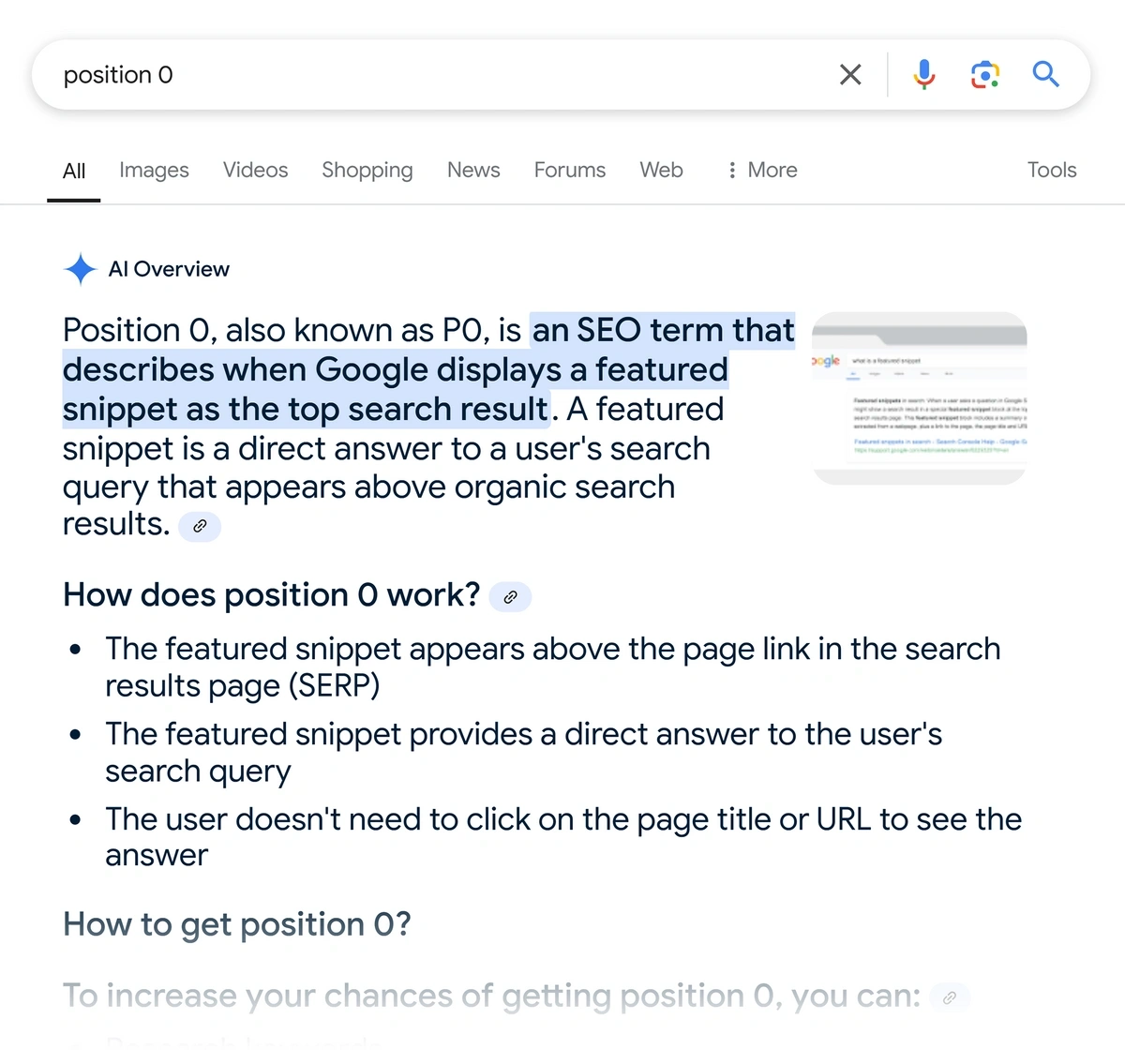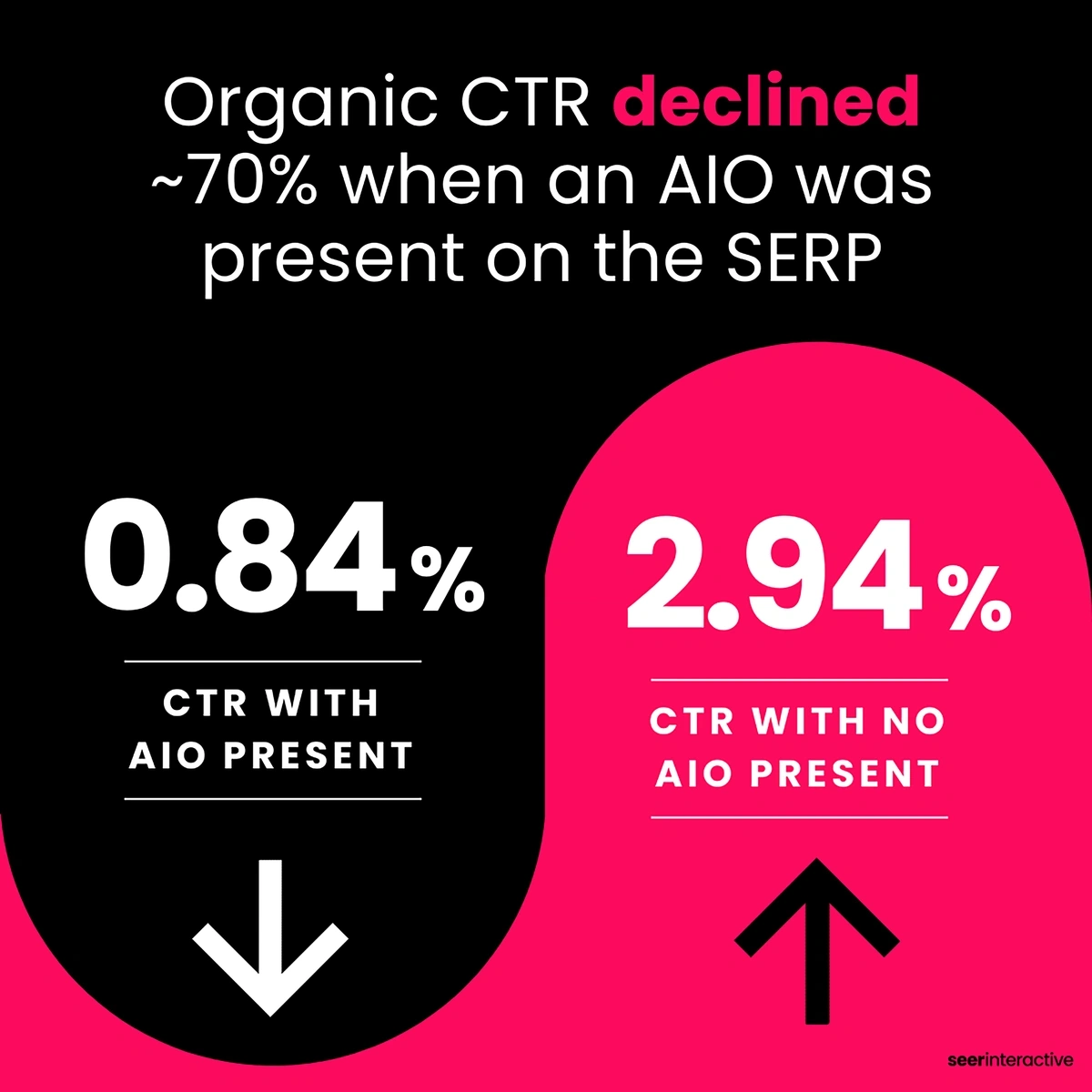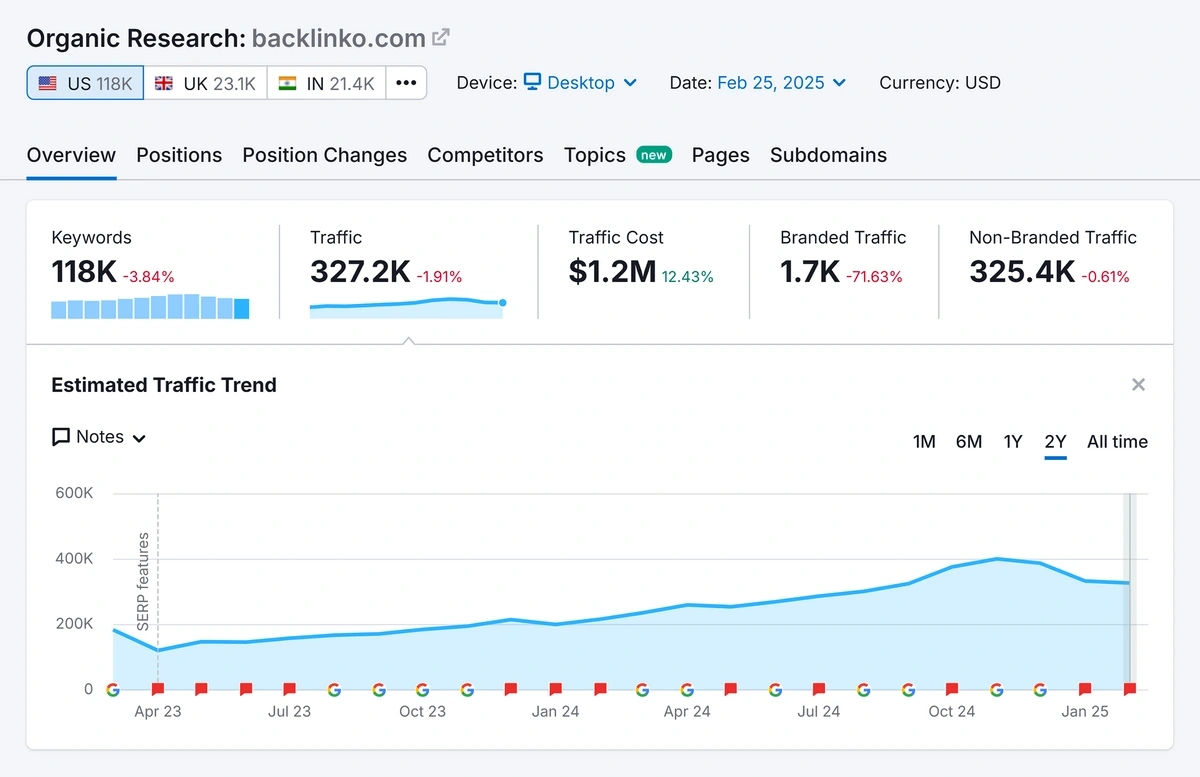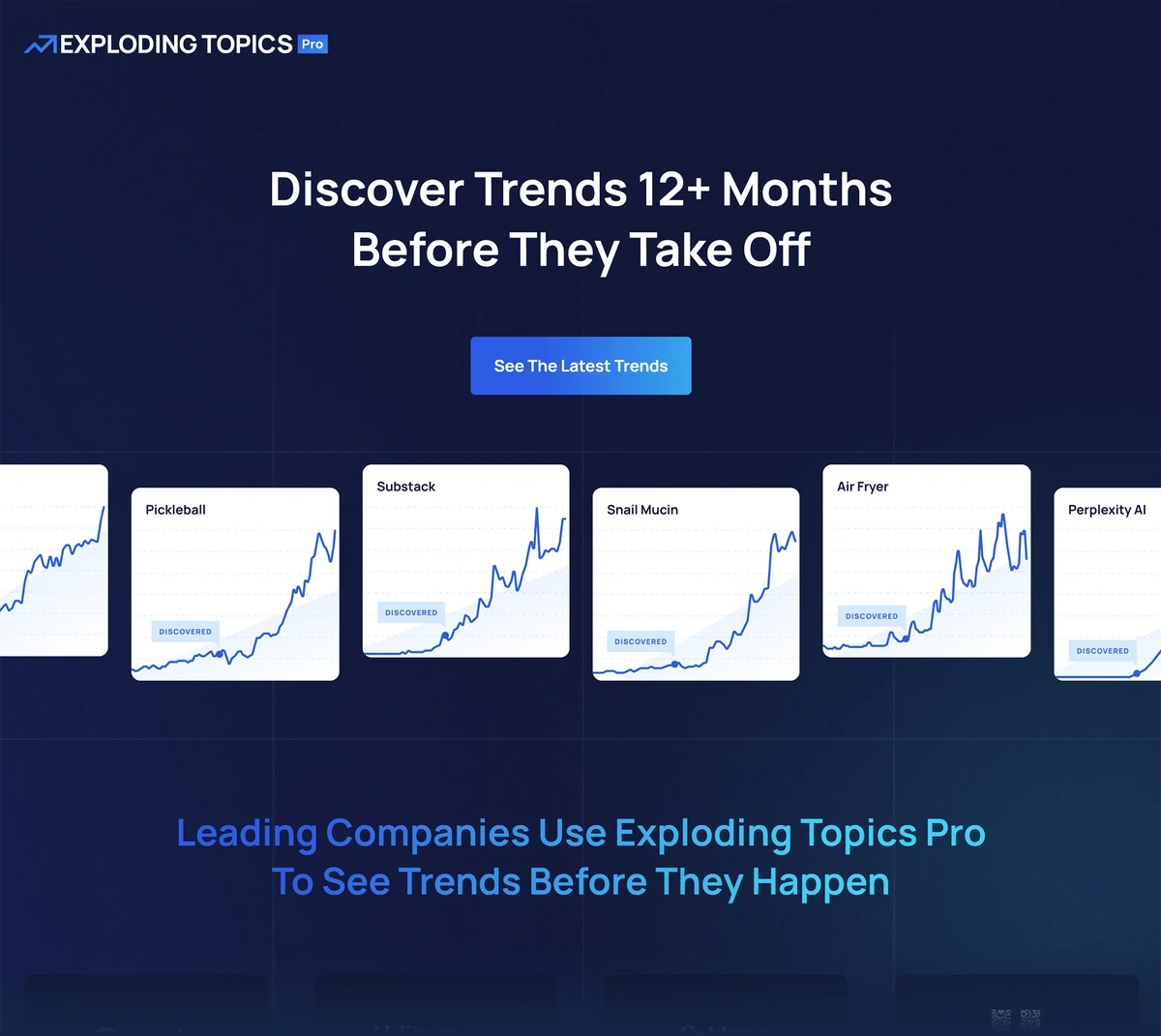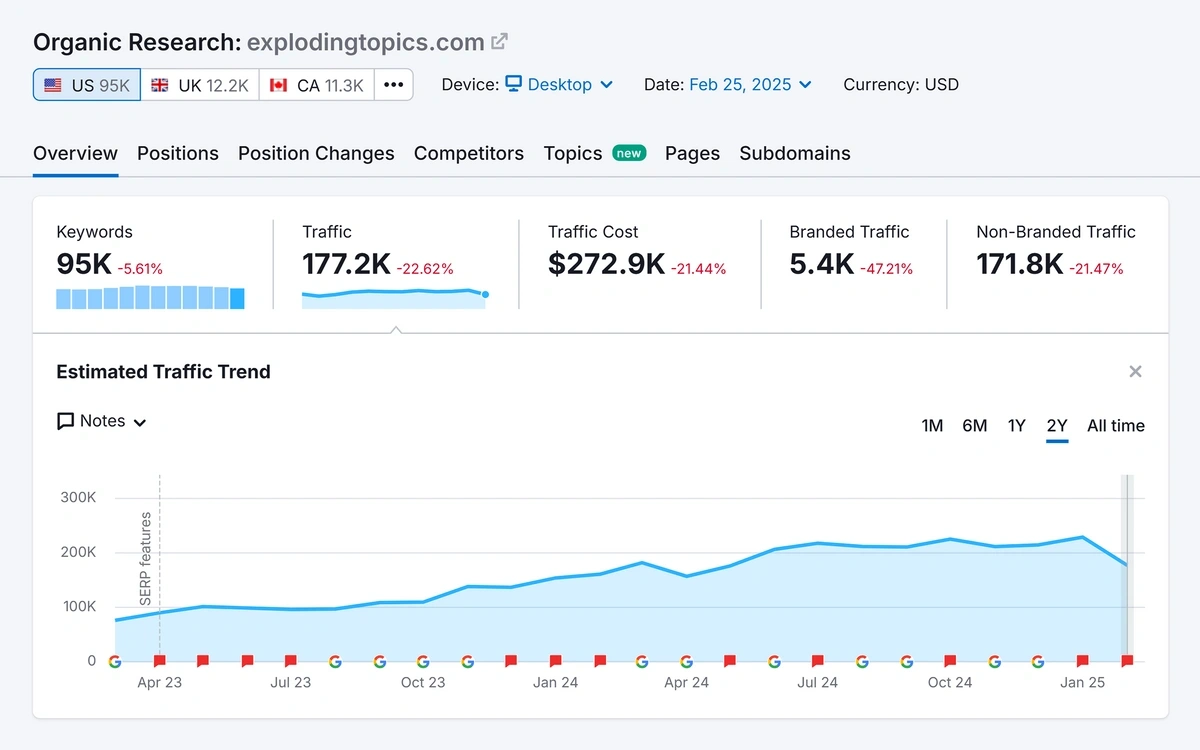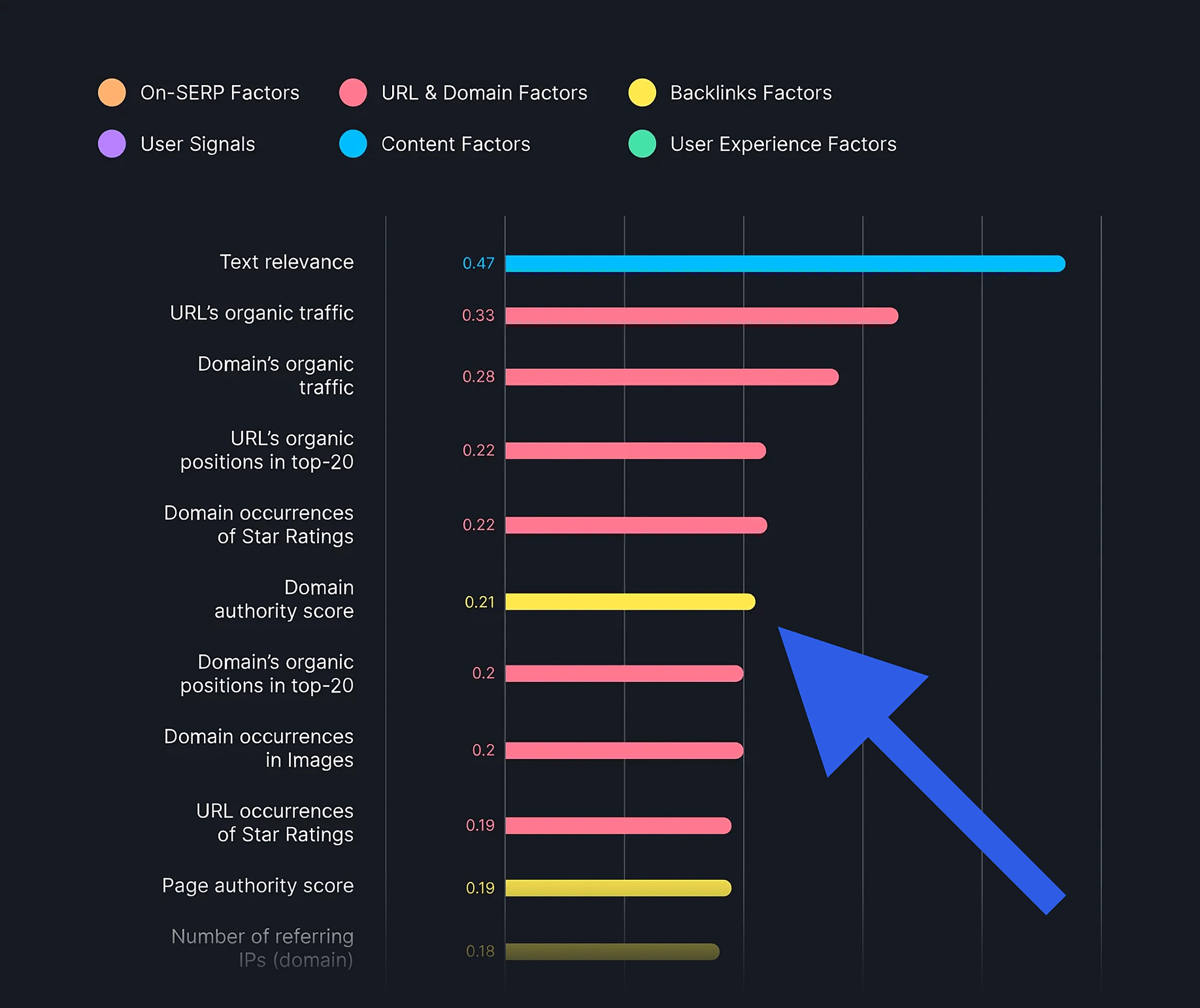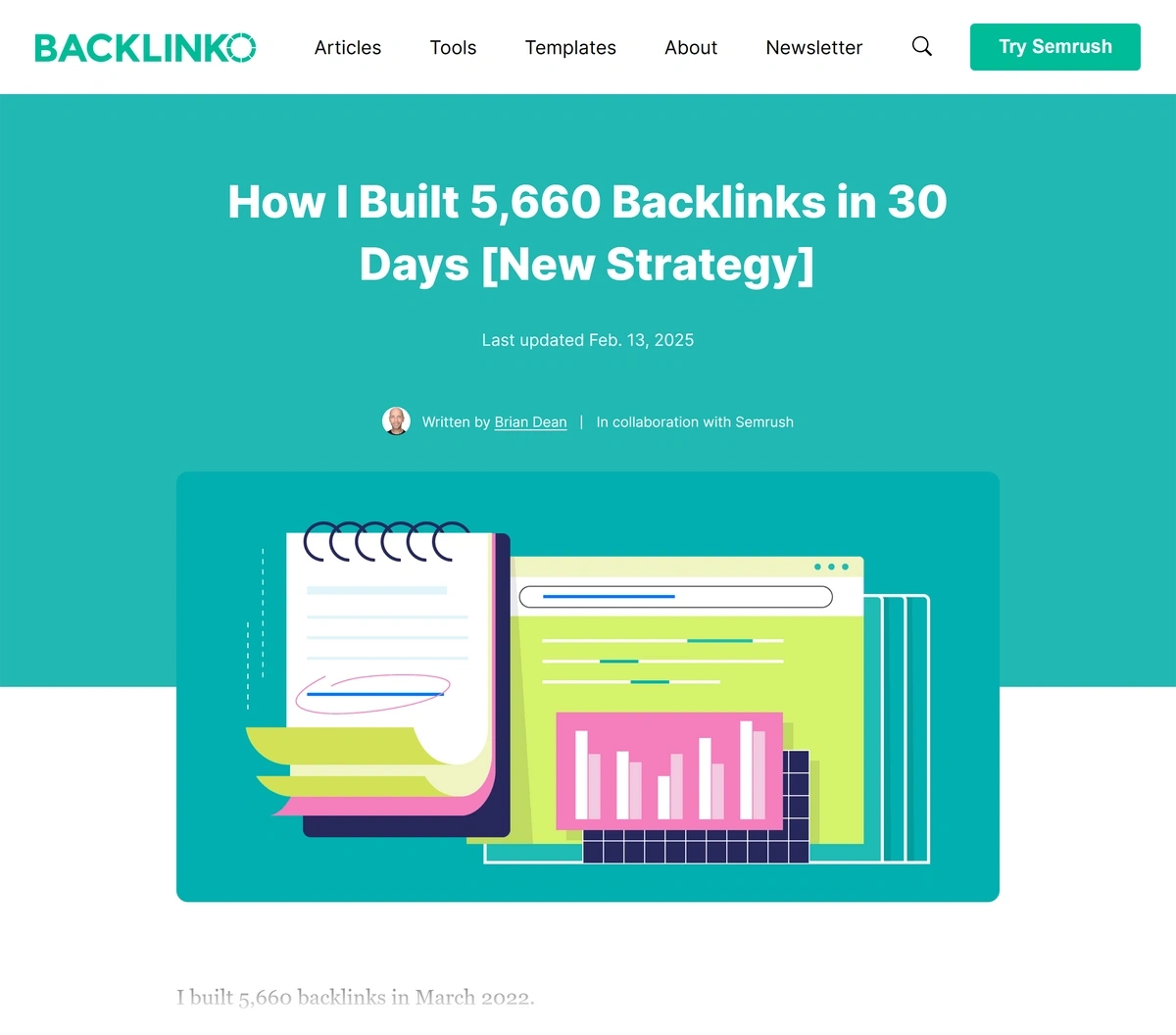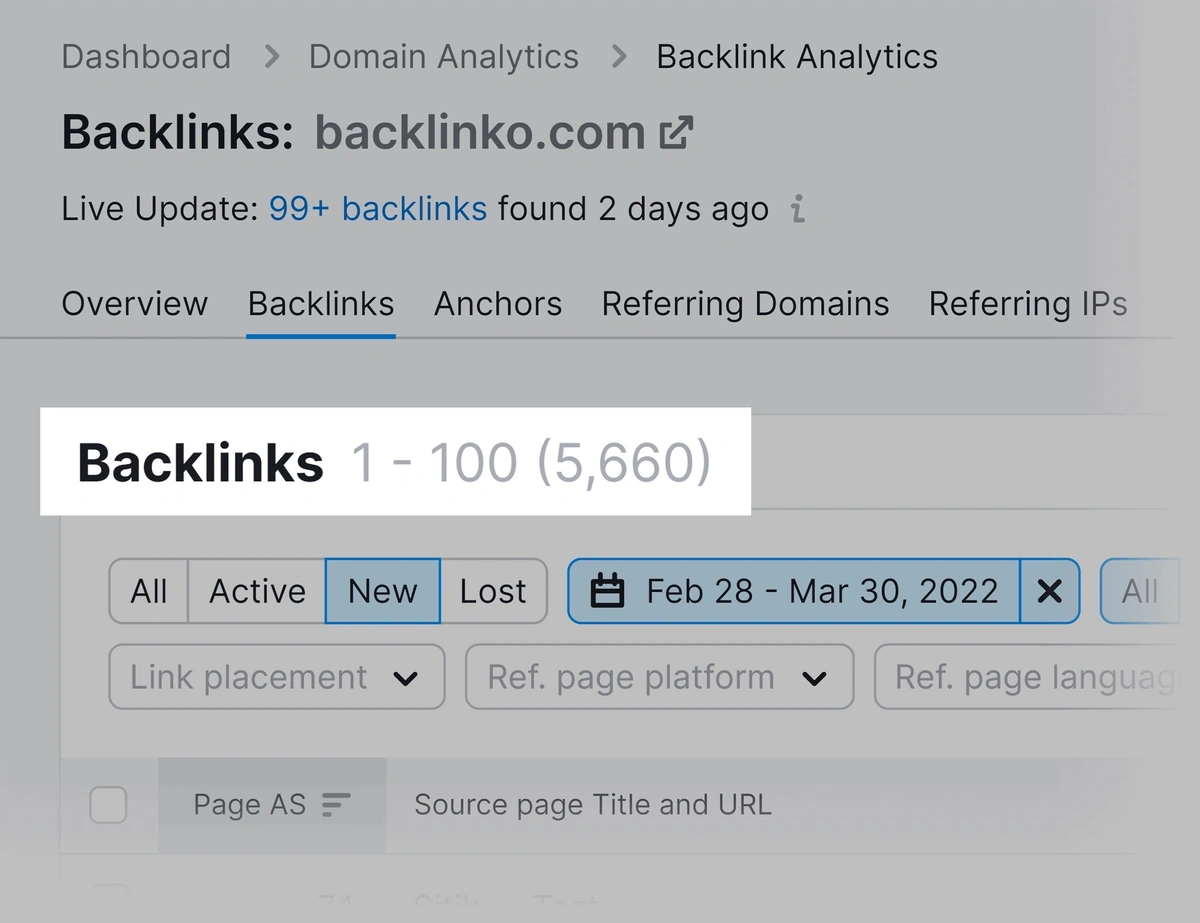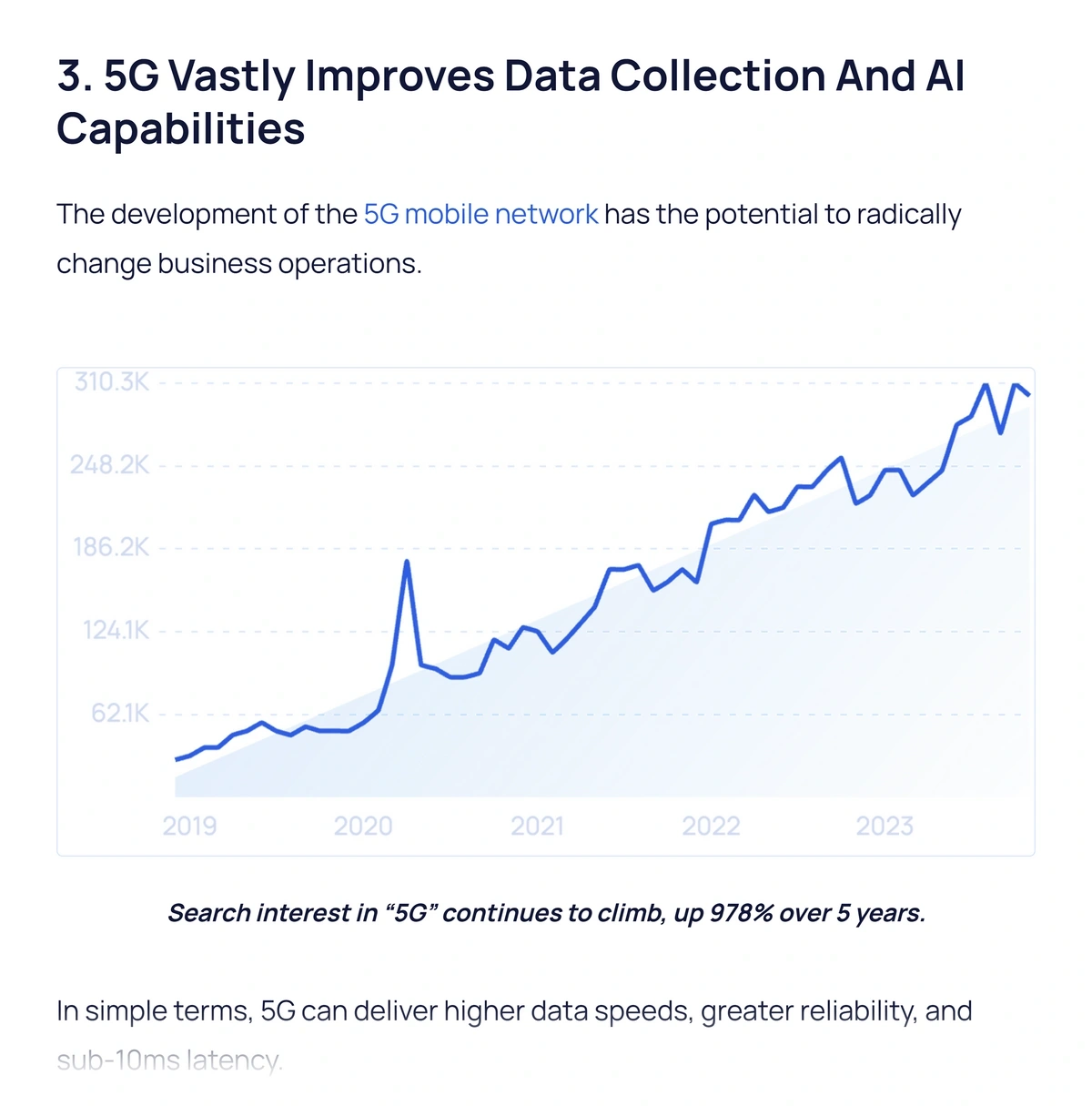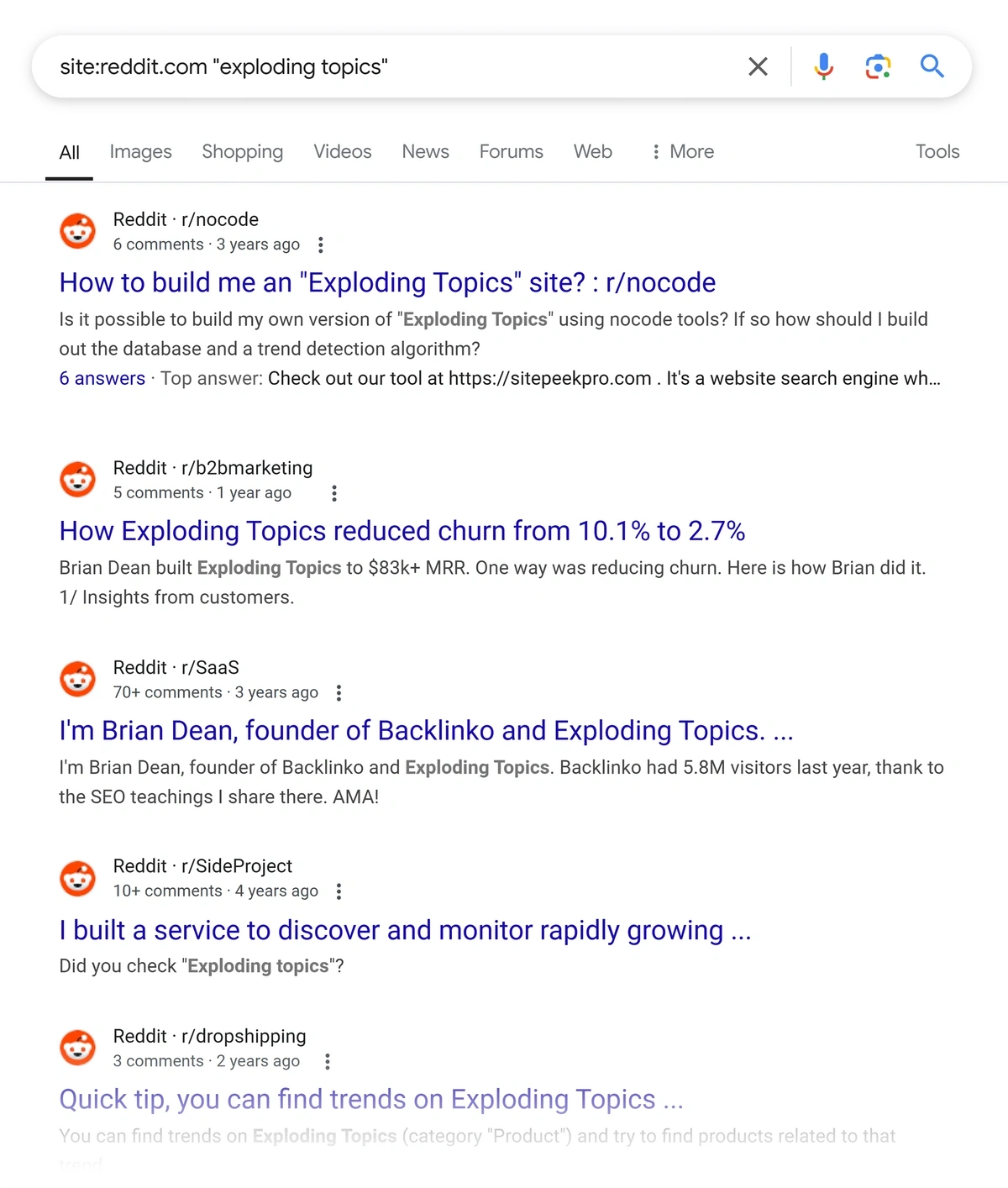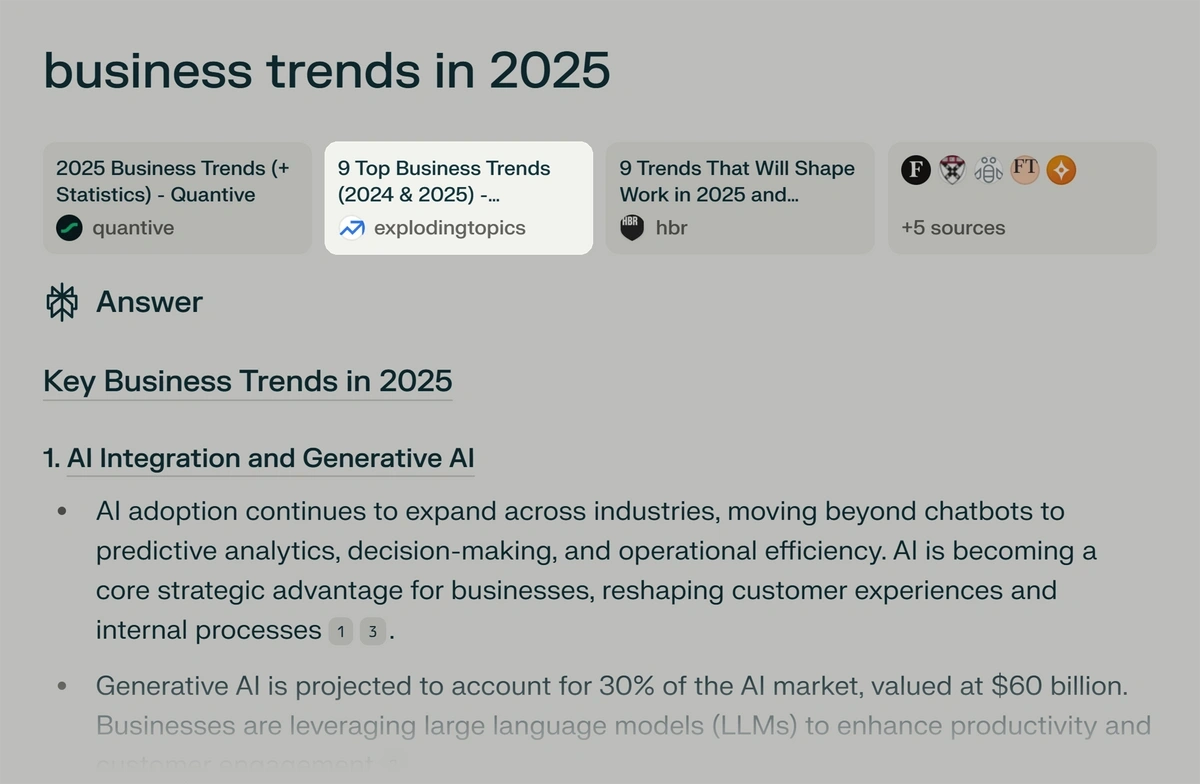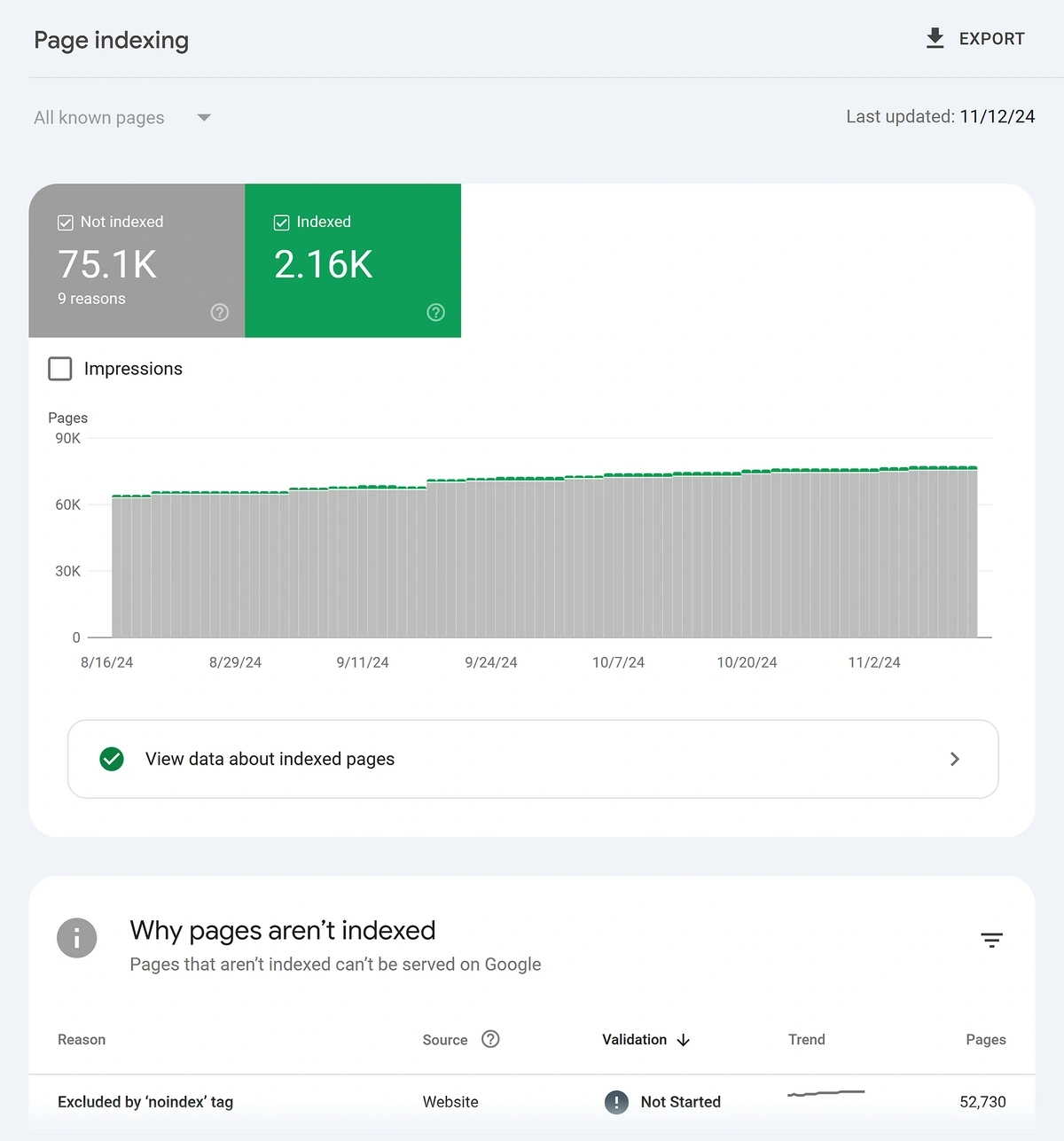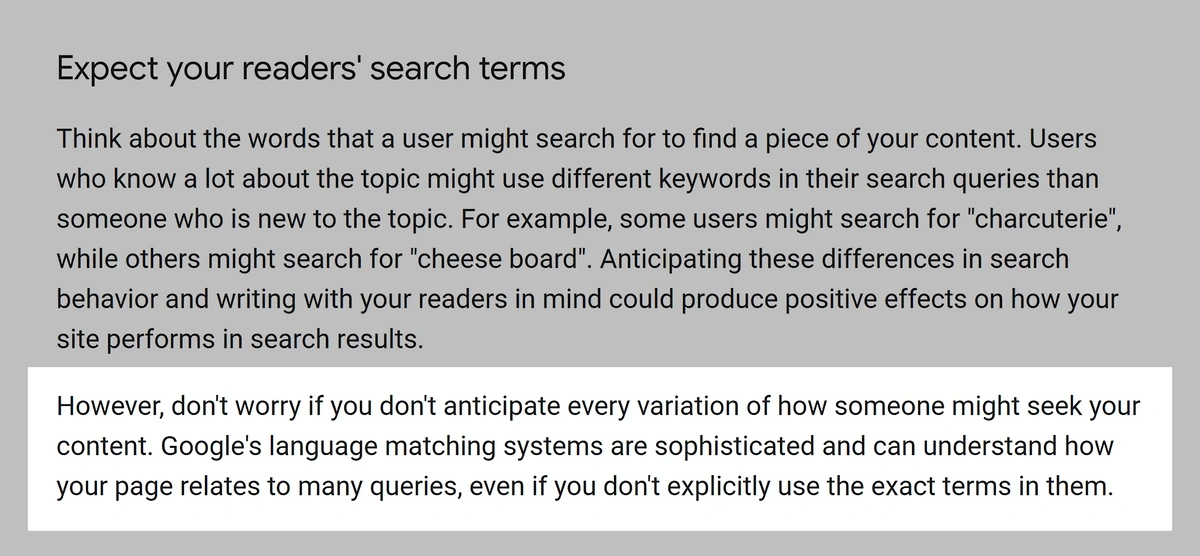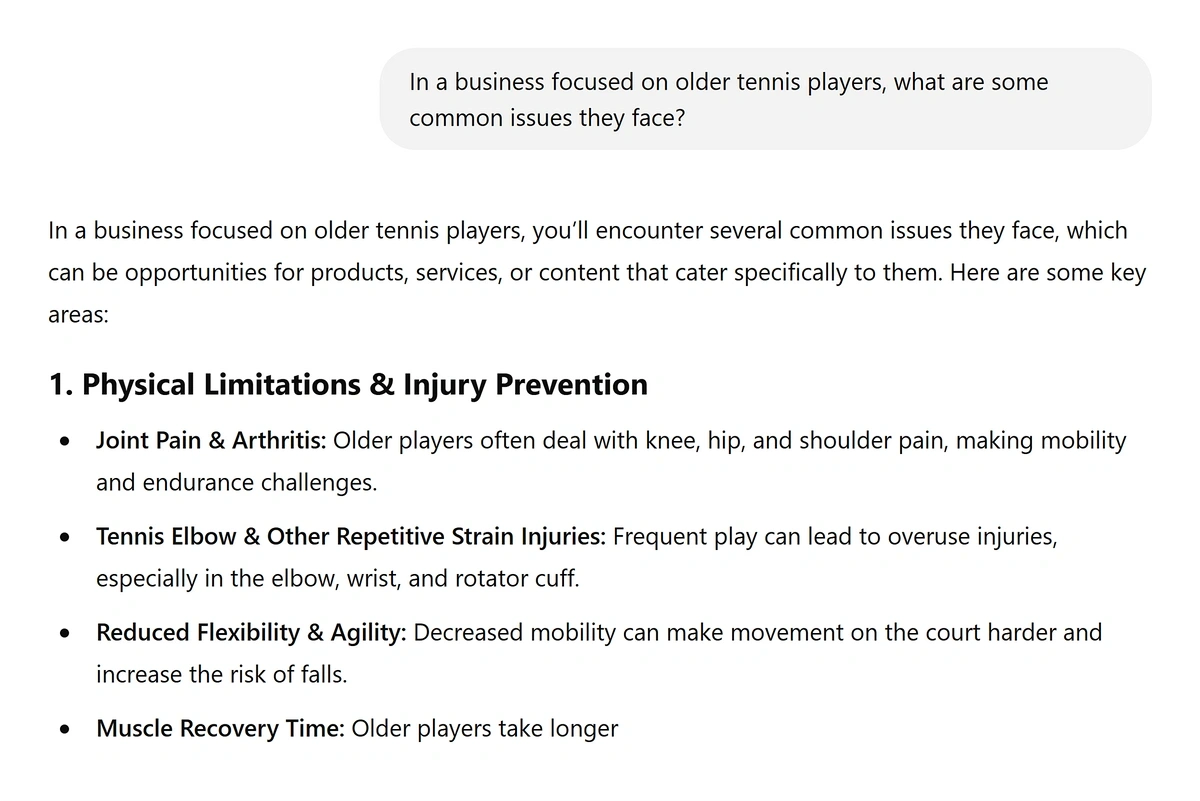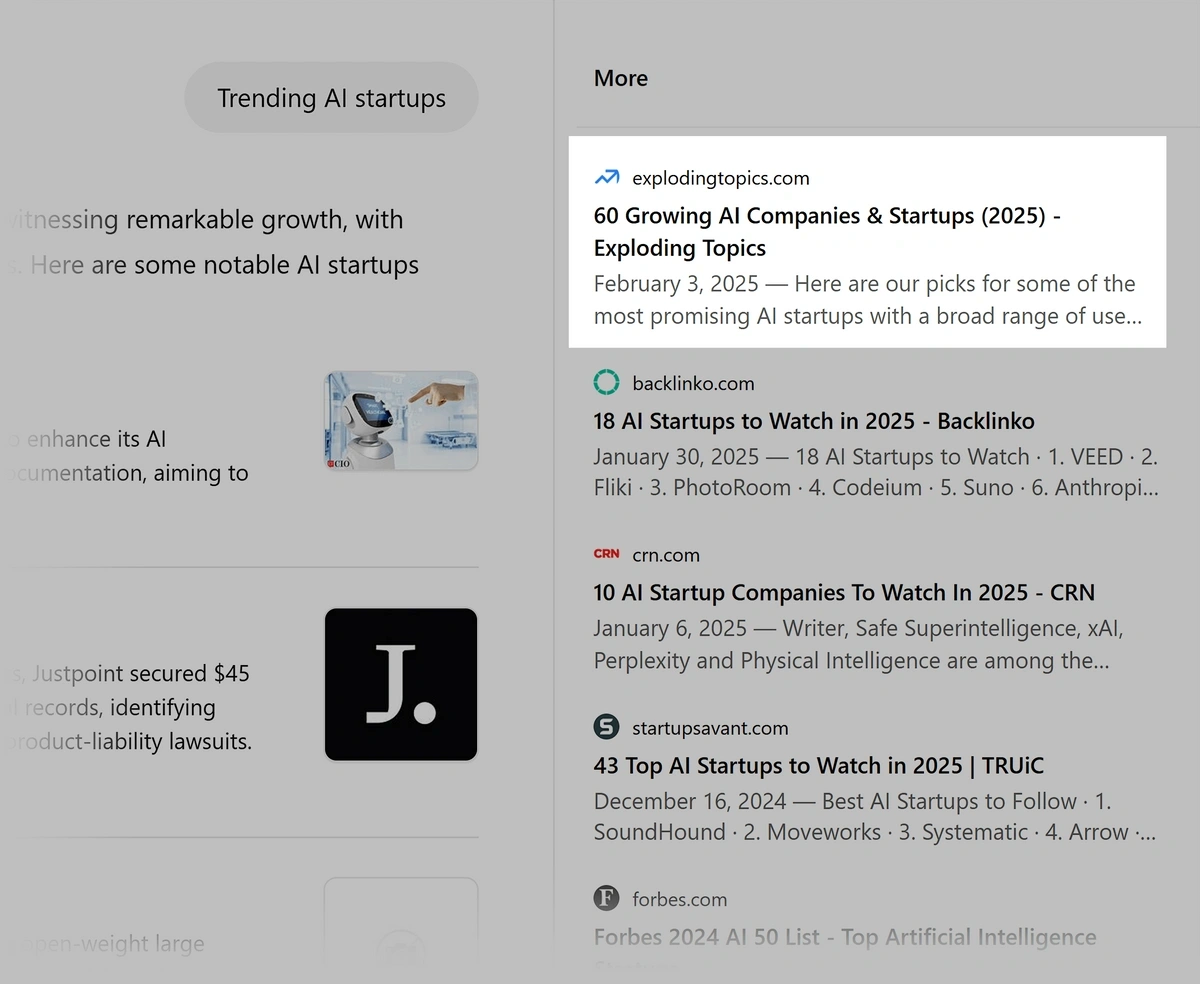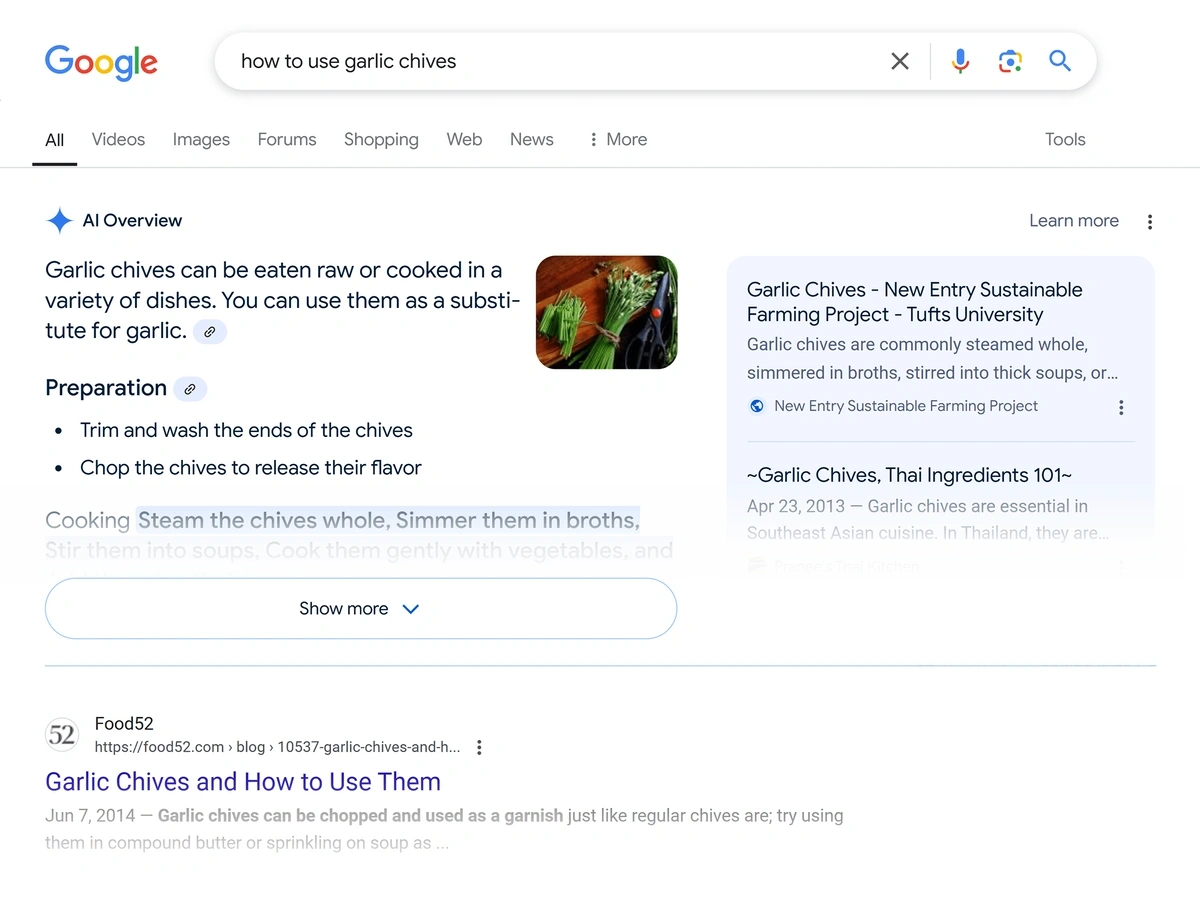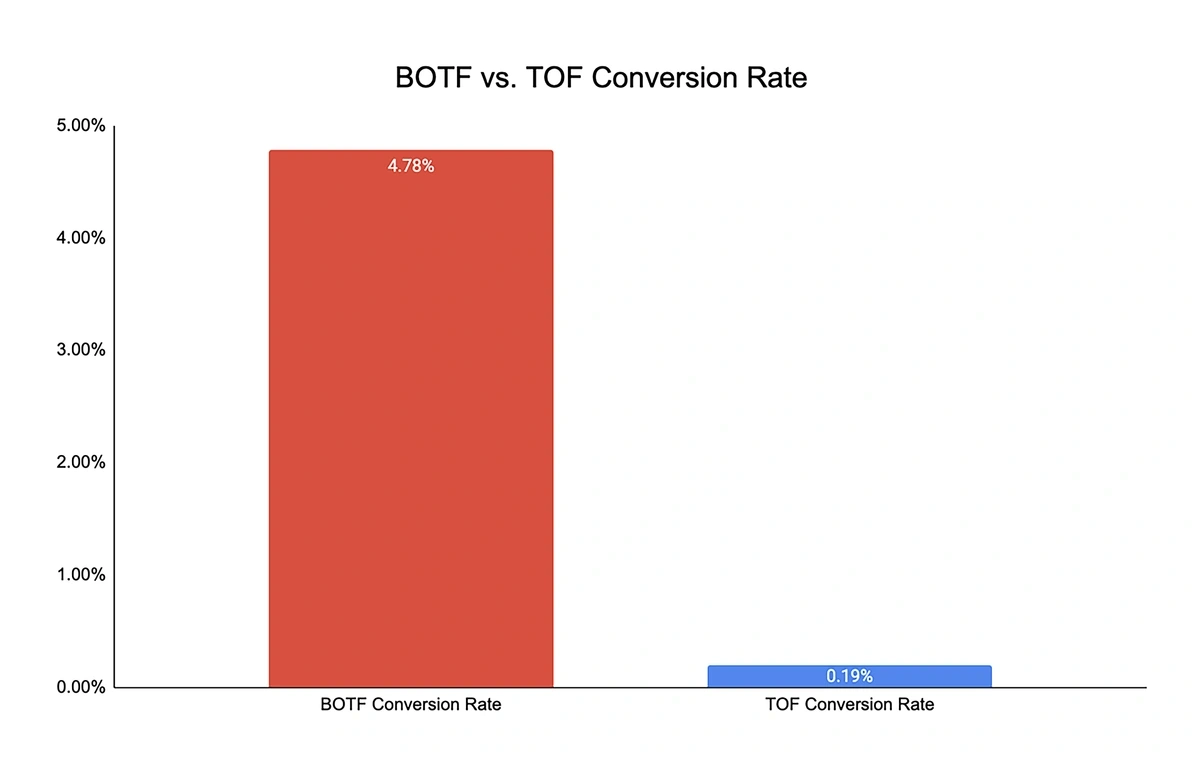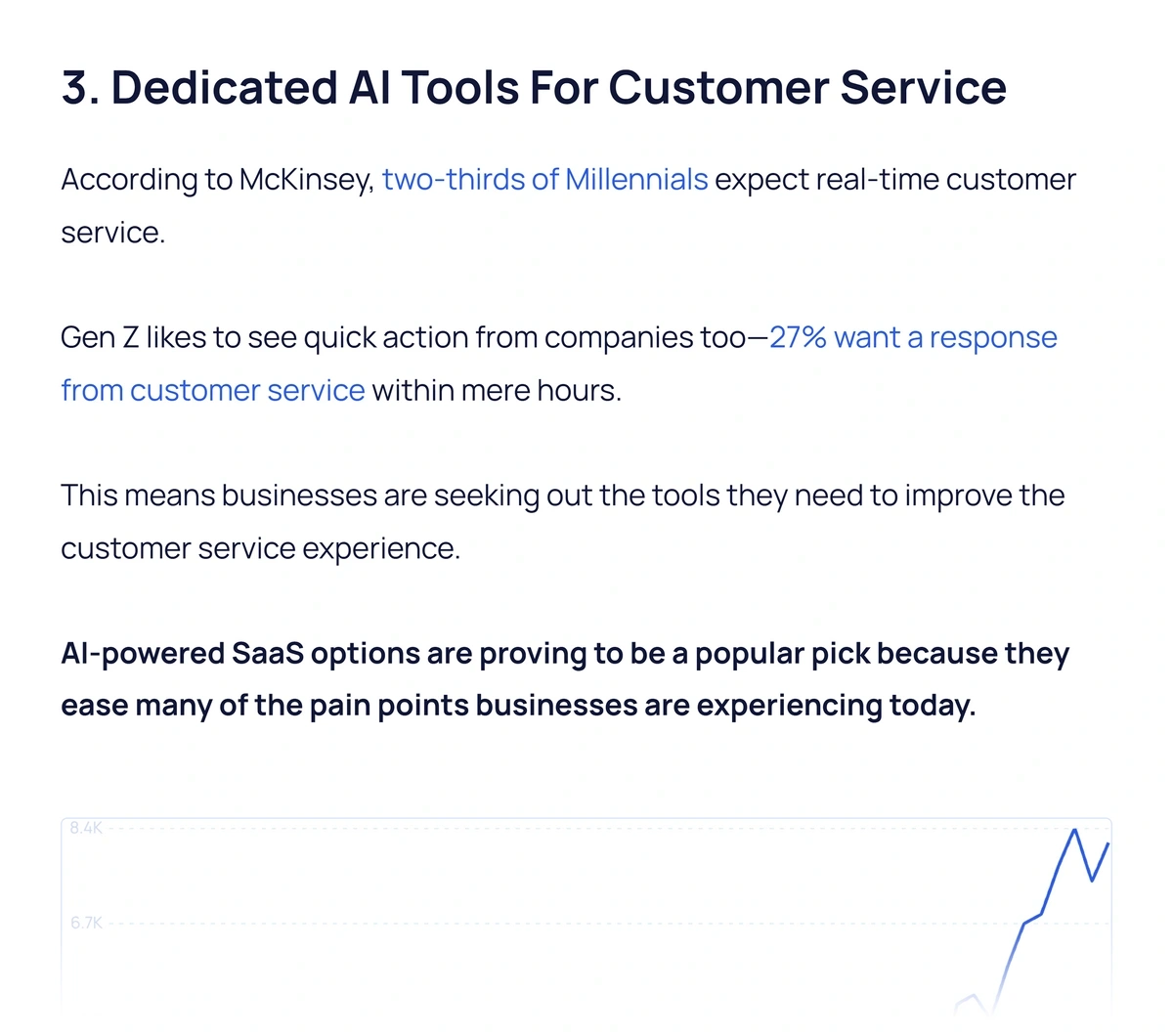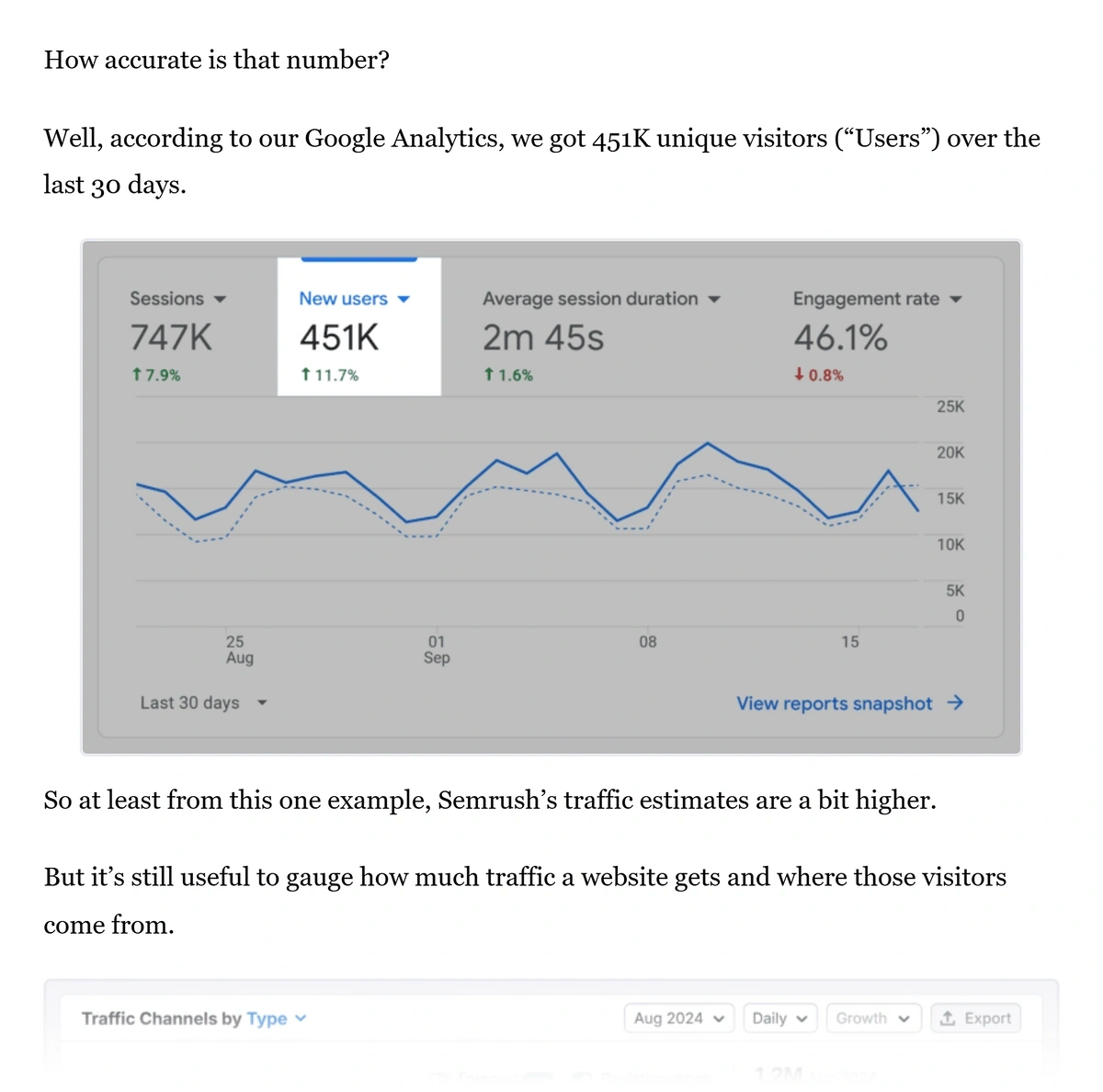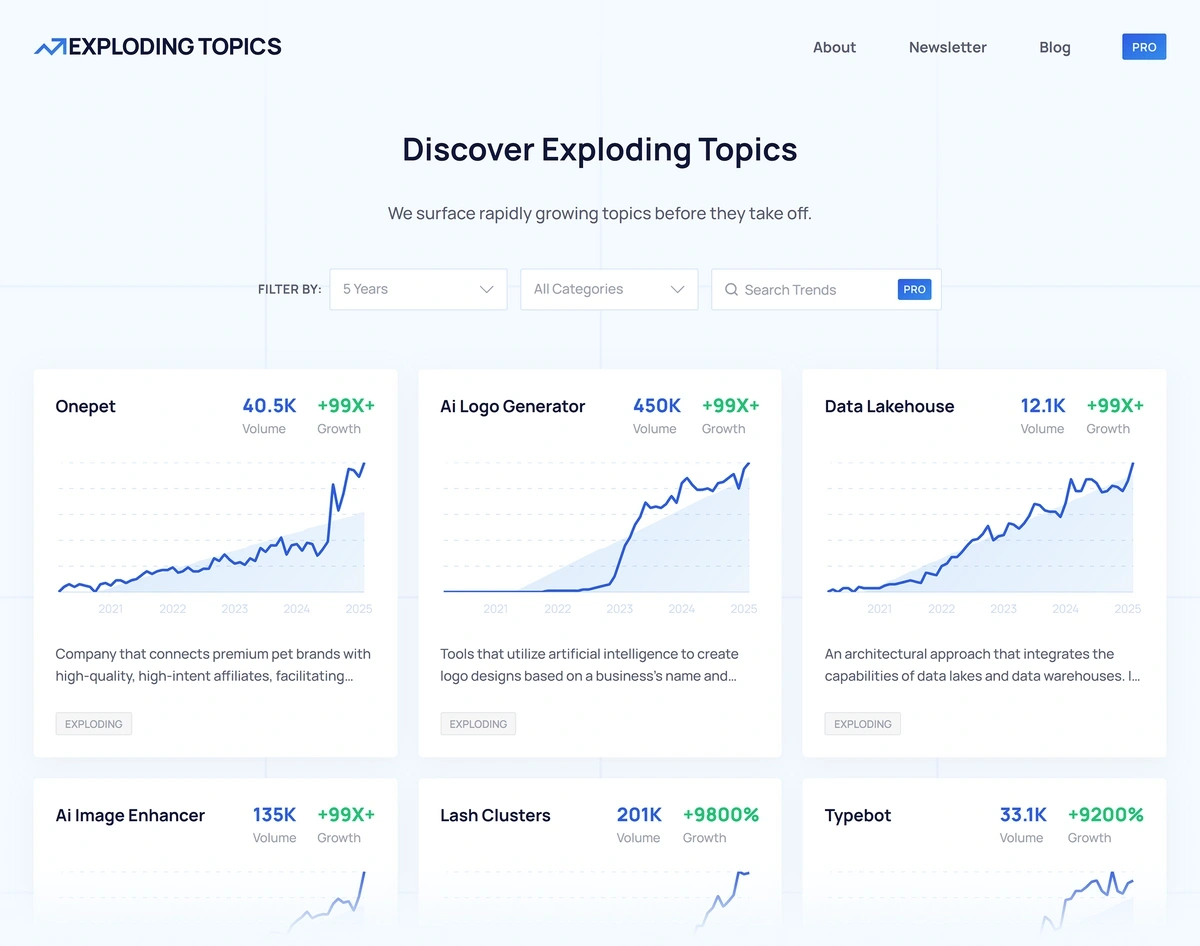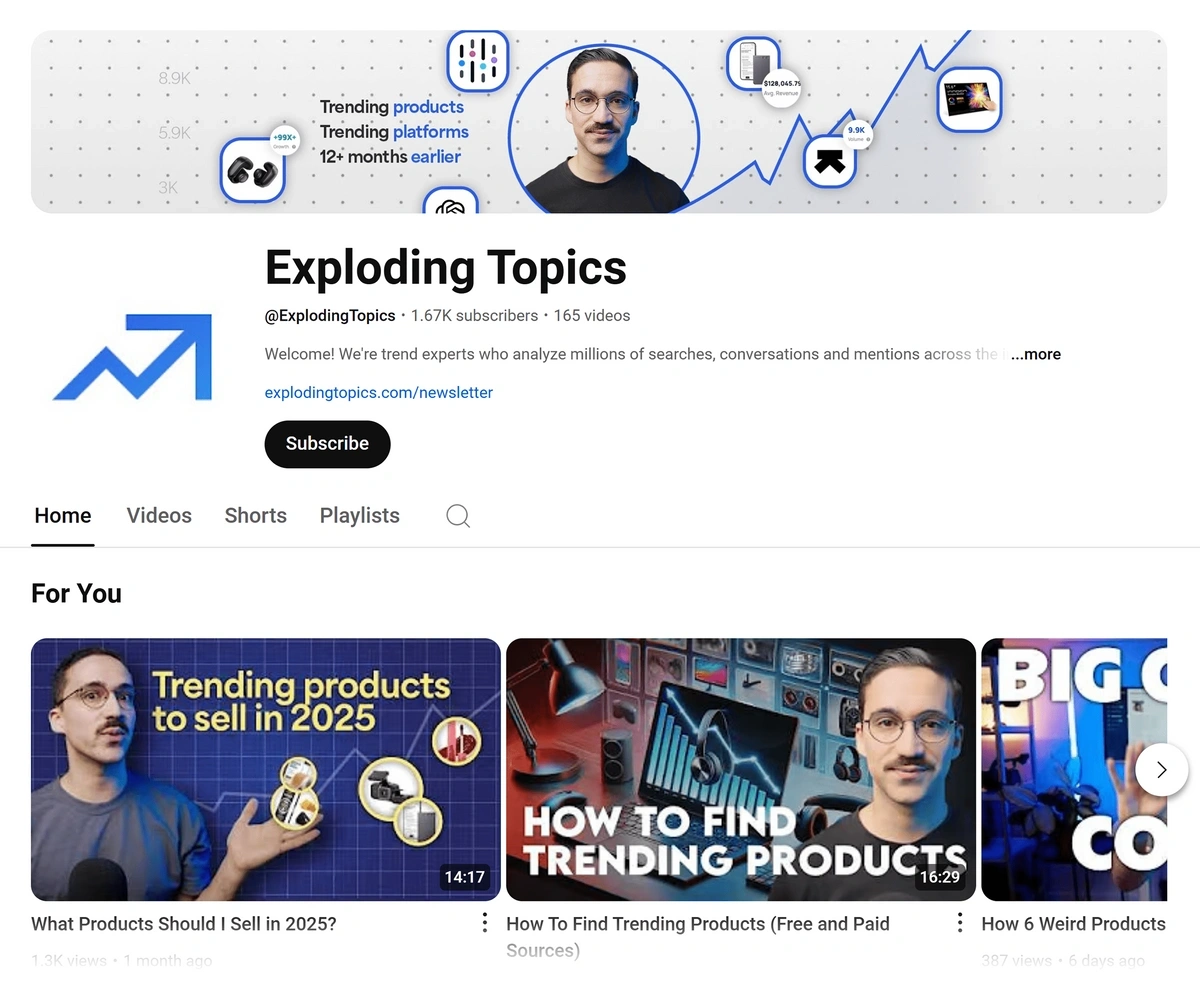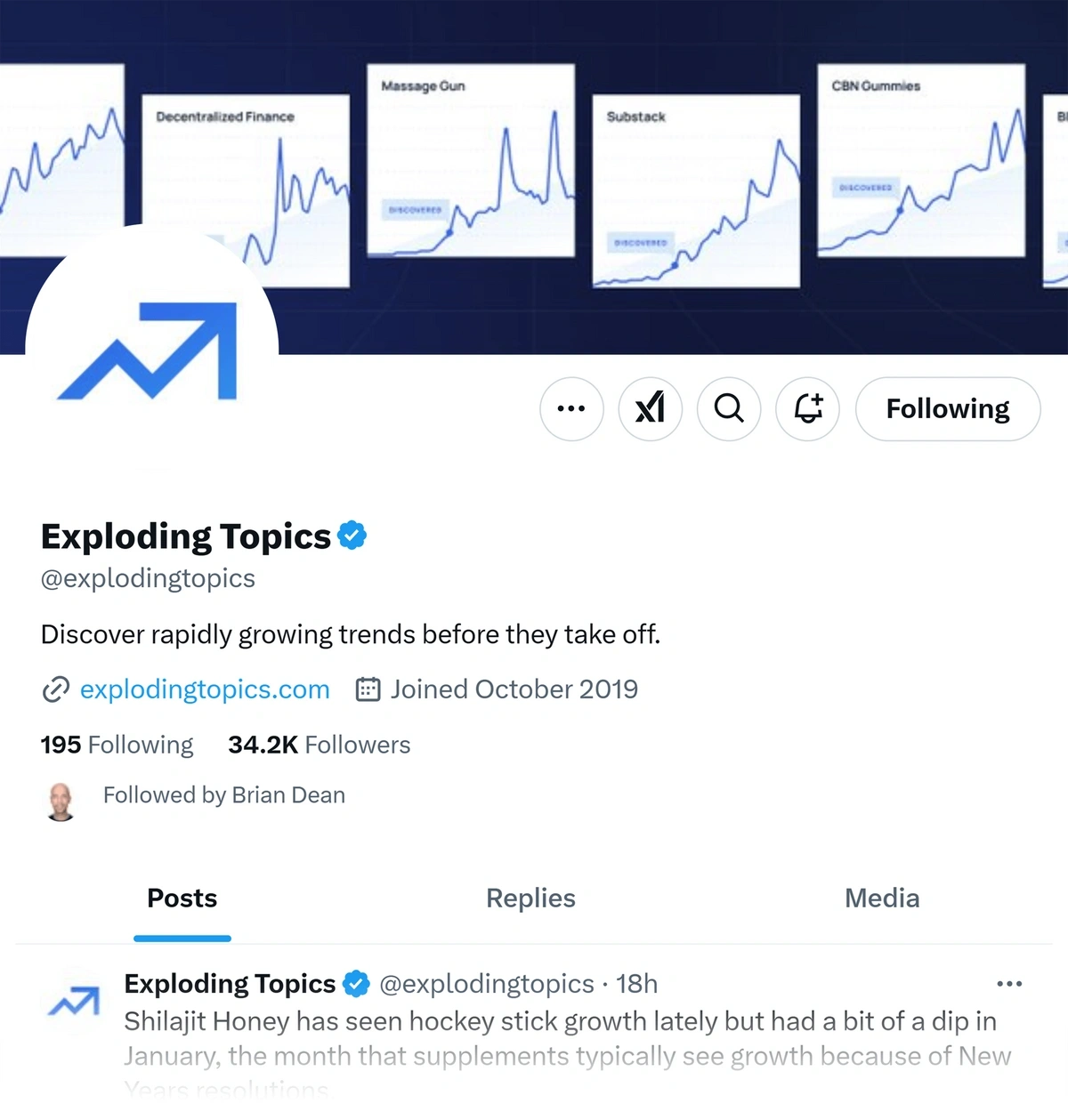Blog > AI & SEO: How to Prepare in 2025
Contents:
Share:
When it comes to SEO and AI in 2025…
AI is a short-term opportunity. But a long-term threat.
On one hand, AI-powered tools let you streamline SEO tasks, automate grunt work, and scale like never before.
On the other hand? AI might be the biggest existential threat SEO has ever faced.
Let’s break it all down.
Use trending keywords to create content your audience craves.
For years, SEO required a ton of manual work.
Keyword research, clustering, content writing, on page optimization, link building—it was a grind.
But with AI?
You can do these tasks faster, cheaper, and (in many cases) better.
Old way: You’d fire up a keyword tool, plug in some seed keywords, export a list, and then manually brainstorm related topics.
New way: You just ask AI.
Ask ChatGPT or Claude, “What are some topics my audience cares about?” and you’ll get a list of relevant keyword ideas in seconds.
No brainstorming.
No spreadsheets.
Just results.
To be clear: there’s still a place for using a keyword tool for uncovering what people search for.
After all, a tool like ChatGPT isn’t going to give you key stats around each keyword (like search volume and keyword difficulty).
It’s more that brainstorming keywords (which can be a tricky and time-consuming first step) is streamlined like crazy thanks to AI.
How about another example? AI-Powered Topic Clustering.
Further Reading: Top AI SEO Tools for 2025
In the past, clustering keywords into topics required a mix of tools and manual analysis. You had to:
Now? You just upload a CSV and let AI do the clustering for you.
There are even a few custom GPTs dedicated to this task:
And this is just the tip of the iceberg.
AI can also help with content briefs, meta descriptions, internal linking strategies—even outlining entire blog posts (if done correctly).
In short: it’s never been easier to rank more with less effort.
Sounds amazing, right?
Well… here’s the HUGE catch.
SEO has always been about playing the Google game.
You figure out what Google wants. Optimize for it.
And generate lots of traffic, leads and customers.
But what happens when people stop using Google?
Because let’s be real—it’s already happening.
People are increasingly skipping Google entirely and going straight to LLMs like ChatGPT, Claude, and Perplexity.
In fact, a survey of over 1,300 Americans by Evercore analysts revealed that 8% of respondents now use ChatGPT as their primary search engine.
(This was up from only 1% in June 2024)
And another industry study found that Gen AI search engine use is up 5.25x since January 2024.
Right now, this shift is mostly happening among marketers, founders, and people in tech.
But give it 5 to 10 years, and it’ll be mainstream.
In fact, LLM search is expected to dominate as soon as 2028.
That’s a HUGE problem for SEO.
If fewer people search on Google, then organic traffic shrinks.
Which means rankings become less valuable.
And all the AI-powered SEO tricks in the world won’t matter if there’s no one searching for your content.
But even if Google does survive, AI is still a massive threat.
AI Overviews (formerly SGE) are already changing the SERPs. Instead of clicking on a site, users get AI-generated answers directly on the SERPs.
Which means? Fewer clicks for websites.
One early study found that organic CTR dropped by nearly 4x when there was an AI Overview in the SERPs.
On the bright side, organic CTRs actually increased when the site was listed as a source in the AI Overview.
Now, to be fair, this shift hasn’t fully played out yet. From the analytics I’ve seen, traffic is still stable (or even up in some cases) for many publishers.
But if Google starts prioritizing AI answers over organic results, the old #1 ranking could get pushed down to the new #5 or #6—buried under ads, AI snippets, and other SERP features.
And when that happens, even the best SEO strategy won’t save you.
Now it's time for me to show you how to prepare for an AI-focused SEO future.
Get a complete view of your competitors to anticipate trends and lead your market
As I said earlier:
AI is a short-term opportunity. But a long-term threat.
Which means Google isn’t dead yet.
In fact, traditional SEO still works incredibly well.
For example, Backlinko’s organic traffic continues to grow:
That said, you absolutely need to prepare for the AI-driven future.
But that doesn't mean you need to abandon Google altogether.
Instead, the smart move is to milk SEO for everything it’s worth while shifting resources toward future-proofing your strategy.
Despite all the noise around AI, Google search is still an insanely powerful, high-ROI platform.
Case in point? Exploding Topics.
We target a tech-savvy, early-adopter audience.
These are the exact type of people you’d expect to be ditching Google for AI tools like ChatGPT and Perplexity.
And yet?
Our organic traffic has seen steady growth over the last 2 years.
And we’re not alone.
Across the board, many sites (especially trusted, authoritative brands) are still thriving in organic search.
Note: If you’re in a B2C niche targeting “normies”, you’ve got even longer before your target customers start using LLMs.
So if your instinct is to pivot away from SEO completely, don’t.
Otherwise, it’s like you’re walking away from a gold mine because you heard it might dry up 5 years from now.
Now let’s get into some tactical things you can do to optimize for Google and LLMs.
If you want to rank in Google, you need backlinks, brand searches, and trust signals.
In fact, Semrush’s most recent Google Ranking Factors study found a strong correlation between Authority Score and rankings.
That’s been true for years. And it’s not changing anytime soon.
But what is changing is AI models determine authority.
Think about it. Both Google and AI-driven search engines like Perplexity face the same challenge:
How do you separate reliable, high-quality sources from low-value, untrustworthy ones?
To do that, they need signals to indicate which sources should be trusted, cited, or ignored.
Google has used backlinks, brand mentions, and engagement signals for years to determine authority.
And AI models will likely use the same signals that Google uses.
After all, LLMs are trained on an enormous dataset.
So they need to decide which sources to prioritize when answering a question.
The best way to do that? Authority signals.
The best way to approach SEO today is to double down on authority-building strategies that work for search engines and LLMs.
In the future, you won’t worry as much about ranking #1 in Google.
The real goal will be ensuring your content is the one being cited in AI-generated answers, like this:
Being seen as an authority in your niche will be a BIG part of “ranking” in AI results.
Technical SEO is important—but most people overdo it.
They obsess over tiny issues that don’t actually impact rankings, spending hours chasing "errors" that Google either doesn’t care about or can work around on its own.
Yes, your site should be fast and crawlable.
But taking your page speed from 1.2 seconds to 1.19 seconds? That’s not going to help you rank.
Even before AI started shaking things up, Google was already getting better at dealing with messy websites.
For example… Sitemaps used to be critical.
Today, Google barely relies on them because it can discover and index content just fine on its own.
No, not direct anyway
Other examples?
In short, Google has evolved. It’s not as fragile as it once was. And AI-driven search engines will only make technical SEO even less of a priority.
Instead of getting stuck fixing minor issues, focus on the few things that actually impact your rankings:
Everything else? Not worth obsessing over.
If you're spending hours tracking down technical SEO "errors" that aren’t affecting rankings, you’re wasting time.
That energy is better spent on:
Technical SEO is like plumbing—it needs to work, but no one cares how fancy it is.
Fix the basics, then move on to what actually grows your traffic.
For years, SEO has been all about keywords.
Fire up a tool, find some high-volume search terms, and build your content around them.
That strategy still works—for now.
But in the future, “keywords” are going to be replaced with prompts.
Google has been shifting away from exact-match keywords for years. Instead, it focuses on meaning and intent.
And AI-driven search engines? They don’t use keywords at all.
A study by AI search by Semrush found that:
This is a HUGE shift.
People don’t interact with AI chatbots like they do with Google. Instead of typing “best running shoes 2025,” they ask:
"I run five miles a day on pavement. I have mild overpronation. What are the best running shoes for support and durability?"
Completely different format. Completely different intent.
If you’re still doing SEO the old way, you’ll struggle to rank in AI-driven search results.
Instead of starting with keywords, start with topics and audience research.
Here’s how:
For example, Exploding Topics shows up as a source in quite a few LLM results:
For years, informational content has been a go-to SEO play.
You answer common questions, rank for long-tail keywords, and drive organic traffic.
That strategy is dying FAST.
Google’s AI Overviews and LLMs are killing search traffic for basic informational queries.
Try searching “How to use garlic chives?”—you’re almost guaranteed to get an AI-generated answer at the top of the SERP.
The days of pulling in thousands of clicks for simple, fact-based content are over.
And honestly? It’s not a huge loss.
Pure informational content rarely converts well anyway.
So instead of wasting time on generic info content, shift toward content that AI can’t easily replicate.
If you’re still producing informational content, make sure it:
AI struggles with this level of original insight.
If you’re still pumping out basic, Wikipedia-style articles, it’s time to stop.
Instead, shift toward content AI struggles to create—deep analysis, original insights, firsthand experience, and content that helps users make real decisions.
You might find our content strategy template helpful.
If your business relies 100% on Google traffic, you’re playing with fire.
Even before AI Overviews and ChatGPT, depending on Google was risky.
Now? It’s straight-up dangerous.
No one knows exactly where search is headed.
Maybe Google regains trust and stays dominant.
Maybe AI-powered search engines like Perplexity start eating into its market share.
Maybe people skip search entirely and go straight to chatbots or social platforms.
The only safe bet? Diversify your traffic—now.
Search isn’t the only traffic source shrinking. Google’s organic visibility has been declining for years thanks to:
Meanwhile, alternative platforms are growing—fast.
Social media, newsletters, and free tools are becoming the main discovery channels for many consumers.
At Exploding Topics, we’ve always prioritized building multiple traffic sources so we’re never at the mercy of a single platform change.
Here’s how we do it—and how you can too.
Here are a few proven ways to drive traffic outside of search:
It’s been a huge source of traffic, especially early on when we had no SEO authority.
Email is algorithm-proof—once someone subscribes, we can reach them anytime.
The best platform for you depends on your audience. If you're in B2B, LinkedIn might be a goldmine.
If you're a DTC or lifestyle brand, Pinterest, Instagram, or TikTok could be huge. The key is to experiment, analyze, and double down on what works.
As someone who’s been in the SEO world for over a decade, I’ve had to adapt to countless changes (Panda, Penguin, mobile, voice search, Featured Snippets and more).
And today is no different.
As I said at the jump: AI is a short-term opportunity. But a long-term threat.
I really believe that.
But to take advantage of the short-term opportunity, you need to adapt.
And to sidestep the long-term thread, you need to adapt even MORE.
If you do, you’ll be in a GREAT spot as search evolves.
Use real-time topic data to create content that resonates and brings results.
Exploding Topics is owned by Semrush. Our mission is to provide accurate data and expert insights on emerging trends. Unless otherwise noted, this page’s content was written by either an employee or a paid contractor of Semrush Inc.
Use real-time topic data to create content that resonates and brings results.
Share
Newsletter Signup
By clicking “Subscribe” you agree to Semrush Privacy Policy and consent to Semrush using your contact data for newsletter purposes
Written By
Brian Dean
Founder
Brian is the co-founder of Exploding Topics. He is an internationally recognized SEO expert and also the founder of Backlinko. Bri… Read more
Research shows that the value of LLM search traffic could overtake Google by 2028. Find out what this means, how to prepare, and more in this report.
Explore free SEO competitor analysis tools for marketers and uses cases. Includes ChatGPT for LLM-readability, Semrush and Exploding Topics for analysis.
Screaming Frog and Semrush are two widely recommended SEO tools—but which one is best? See how the two platforms stack up, and learn how to get an extended Semrush trial.
Use these proven strategies to improve your website SEO for higher visibility in traditional Google search and AI-driven results.
Compare Google Keyword Planner vs Ahrefs with our detailed analysis. Learn key features, pricing, and limitations to choose the best keyword research tool.
website SEOWebsite Traffic

